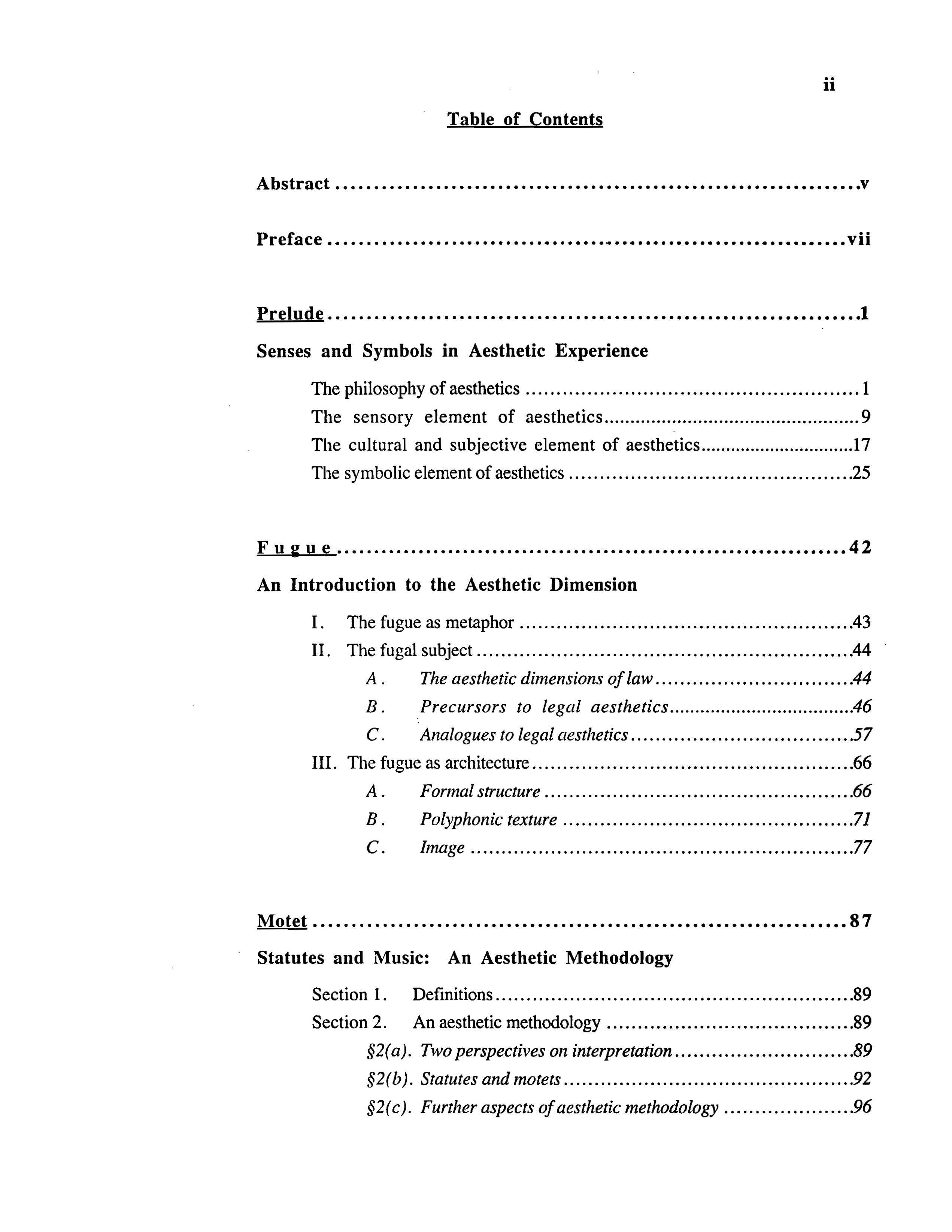Guest post by K. Joan Harrison
One of the most interesting theses I have come across is an interdisciplinary thesis written by Desmond Manderson for the Doctor of Civil Laws degree in 1997.
Abstract: “Songs without music” is about aesthetics, law, and justice. It is written in a creative and novel manner, as explained in the abstract: “I attempt to develop my argument by aesthetic as well as rational means. Music is the focus for this. Each chapter is based on a different musical form, and each uses music as comparison and metaphor. But more than this, in different ways and in different styles, each chapter embodies a complex of aesthetic resonances which relate to the argument the thesis develops. Songs Without Music has been designed not only to talk about aesthetic meaning, but to embody it.”
The table of contents is divided into phrases, bars, and units – each with a musical theme. Dr. Manderson went on to publish Songs Without Music : Aesthetic dimensions of law and justice in 2000, and taught for ten years at McGill before moving to the Australian National University (“Professor Desmond Manderson,” Australian National University, last modified August 21, 2014, https://researchers.anu.edu.au/researchers/manderson-dra).

Table of contents. Manderson, D. (1996). Songs without music: Aesthetic dimensions of law and justice.
K. Joan Harrison is a McGill School of Information Studies student who has been working with the Digitization & Delivery team this summer to digitize and upload McGill theses to eScholarship, our open access institutional repository.
